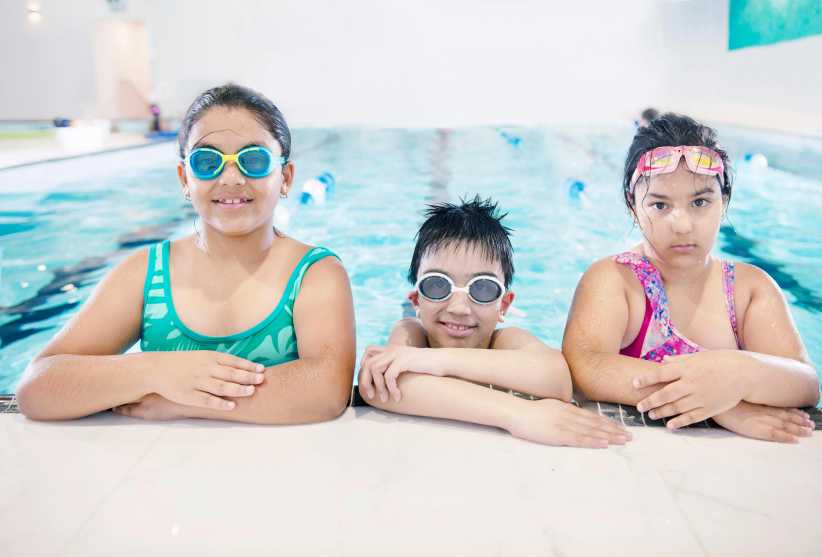It’s Monday morning and the start of a new week. Families all over America are getting ready to send their children to school. The Jones family, however, is late once again. Their child won’t get out of bed on time. Their child won’t listen when they say to get dressed. A simple routine of getting up, getting dressed and getting ready for school creates insurmountable obstacles, conflict, hostility and utter chaos. By the time he gets down the stairs for breakfast, the school bus has already left.
This happens every day. Their child has been diagnosed with ADHD, and they feel out of control and out of balance all the time.
Parents of a child with Attention Deficit Hyperactivity Disorder, or Oppositional Defiant Disorder, must search out schools, teachers, professionals, and other community resources.
They find themselves having to supervise, monitor, teach, organize, plan, structure, reward, punish, guide, buffer, protect, and nurture their child far more than is demanded by the typical parent. They will also need to meet more often with other adults involved in their child’s daily life — school staff, pediatricians, and mental health professionals. Their lives are a balancing-act in which they must juggle complex schedules.
However, raising a child with ADHD can elevate parenting to a higher plane. It may be the hardest thing you ever have to do, but it can provide a tremendous opportunity for self-improvement and fulfillment as a parent.
We’re all faced with daily stresses. Finances might be tight and difficult to manage. There may be too many things to do in a given day. Relationships might not receive the attention they deserve and they can become strained. There just never seems to be enough time to allow us to spend quality time with our children. We get caught up in the everyday activities of life and we fail to recognize what is most important to us, our children and their future.
The Jones family feels helpless and frustrated. Their expectations for their child are not being met. They thought life would be easy for them, but their expectations do not take into consideration the reality of their child’s disorder. They are disappointed and upset. They blame themselves for their child’s inability to succeed at school and to form relationships with others.
What the Jones family fails to understand is why their child acts and reacts to given situations. They don’t understand that their child has a disorder and has difficulty focusing and concentrating on their commands. They don’t understand that their child’s impulsivity is a part of the disorder. Their child is confused and doesn’t know why he behaves the way he does. As one child said to their mother, “I don’t understand why I act the way I do, please help me mommy.” Their child feels out of control.
The Jones family is under constant stress. The family reacts to situations as opposed to being proactive. They fail to plan for winning outcomes. They take things personally, and think their child is just acting out. Their child isn’t acting out, but is just asking for love in the most unloving way.
A family with an ADHD or ODD child needs to take control of the situation.
Be proactive.
Far too often, we react to our children’s behavior on impulse without regard to the consequences and with no plan for what we are trying to achieve. Seeing a situation from a reactive frame of mind can make things look hopeless. It is not what your child does to you that creates these problems, but your response. Take the initiative to change what you do not like in the way you react to your child, and accept the responsibility to make the relationship happen in the way your want it to develop.
Spend time with your child.
Spend special time with your child each day. Be with them for 20 minutes a day in a non-judgmental way. These children are seeking your attention. Spending quality time with your child without giving directions or judgments is the first step in the process of reconnecting with your child.
Be consistent.
Children with ADHD lack the ability to plan, to be organized and stay focused. This creates confusion as to what behavior is appropriate in a given situation. This can create a feeling within them of instability, lack of safety and lack of control. Being consistent can help provide them with a safe structure and controlled environment in which they can function at a more productive level.
Plan with the end in mind — be goal oriented.
All interactions between individuals are a form of negotiation. Don’t just concentrate on what you want your child to do. Concentrate on setting up a behavioral management plan that is goal oriented and achievable. This will enable a child to feel successful and improve their self-esteem. The life plan is based upon wants instead of immediate needs and teaches them the ability to think and plan in a proactive way.
Take care of yourself.
Too often, parents of ADHD children devote too much of their time and energy to their children and, in the process, exhaust themselves. Failing to take time to renew yourself physically, mentally, socially, emotionally and spiritually can cause you to shut down and have less time and energy to devote to your child. The best gift you can give yourself is the gift of self-renewal.
Use a collaborative approach.
ADHD in children often requires medical, education, behavioral, and psychological intervention. This comprehensive multi-modal approach to treatment often includes:
• Parent trainings
• Behavior intervention strategies
• An appropriate educational program
• Education on ADHD
• Individual and family counseling
• Medication, when appropriate
Parent Trainings are often the first step in the learning process. Trainings help educate parents to better understand the nature of the disorder. Conducting meetings in a group approach allows parents to share their experiences with others in a caring and supportive environment. Parents learn how to manage their children on a day to day basis. Trainings help relieve stress in families, bringing them closer together.
Life may still feel like a balancing act, but parents who rise to the occasion often feel a greater sense of accomplishment and bring parenting to a higher level.
Elaine Lerner, MSW, CSW is an ADHD, ADD and ODD Parent Trainer. She trained with Russell Barkley, PhD, an internationally recognized authority on ADHD. Email: elaine@adhdparenttrainer.com. © www.ADHDParentTrainer.com





















